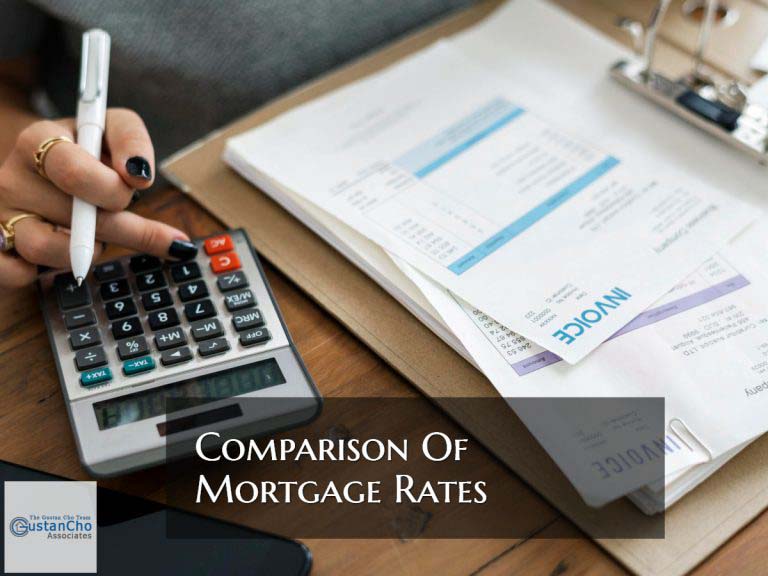In this article, we will cover and discuss how mortgage lenders determine interest rates. Many home buyers and homeowners often get confused when they shop for rates on how mortgage lenders determine rates. Mortgage borrowers should be aware of the various how mortgage lenders determine rates prior to applying for a mortgage. Not all borrowers get quoted the same mortgage rates by mortgage lenders. The way how mortgage lenders determine interest rates is based on how much-layered risk they have. The higher risk posed to the lender, the higher the rewards. The higher rewards for lenders are higher rates and possibly origination discount points. In the following sections, we will cover and discuss how mortgage lenders determine interest rates.
What Are Mortgage Rates Based On?
The way how do mortgage lenders determine mortgage rates is by assessing multiple layers of risks of borrowers. The higher the risk of the borrowers, the higher the rates. There are various loan level pricing adjustments. Loan level pricing adjustments are also referred to as LLPAs. LLPAs are pricing hits to mortgage rates due to higher risk by lenders. Consumers looking to qualify for a mortgage should start ahead of time preparing to maximize their credit scores. You can easily boost and maximize your credit scores. However, it takes time to maximize your credit score. It can take up to two months to maximize and boost your credit scores.
Are Mortgage Interest Rates Based on Credit Scores?
A higher credit score means lower mortgage rates. Lower rates can mean tens of thousands of savings over the course of the term of the loan. The team at Gustan Cho Associates are experts in helping borrowers maximize their credit scores so they can qualify for a mortgage at the lowest rate possible. A prior bankruptcy, foreclosure, deed in lieu of foreclosure, or a short sale has no bearing and/or impact on mortgage rates. Many consumers think a prior bankruptcy and/or a housing event yields a higher rate. That is not true. We will go over pricing adjustments that affect mortgage rates in this article. In this article, we will discuss and cover Factors Determining Mortgage Rates On Home Loans.
Do Different Mortgage Lenders Have Different Mortgage Rates?
Every lender has its own pricing adjustments when it comes to risk levels. Therefore, not all lenders have the same loan level pricing adjustments on mortgage rates. It is wise for borrowers with higher credit scores to shop for the best mortgage rates with various mortgage lenders. Most borrowers will gravitate towards a lender with the lowest mortgage rates and terms. Having the lowest mortgage rates mean having a lower monthly housing payment which translates into tens of thousands in savings over the term of the loan.
Can You Shop For The Best Mortgage Rates With Bad Credit?
Just because you have bad credit and low credit scores do not mean you cannot shop for a mortgage. Not all bad credit mortgage lenders have the same rates. Some lenders will charge high rates plus discount points. Other lenders will not charge discount points. Unfortunately, many borrowers with lower credit scores and bad credit are under the assumption shopping for rates with bad credit is a waste of time. Many bad credit borrowers often are just grateful for getting approved for a home loan with bad credit. Borrowers need to understand that boosting credit scores is no rocket science. The team at Gustan Cho Associates are experts in helping borrowers with low credit scores and bad credit maximize their credit so they can qualify for a mortgage with the best rates.
Do Mortgage Rates Change Based on Credit Score?
The biggest impact on mortgage rates on any home loan is the borrower’s credit score. There are three credit bureaus: Experian, Equifax, and Transunion. Lenders use the borrower’s middle credit scores as the qualifying credit score during the mortgage process. Jammi Cash of Gustan Cho Associates is an expert in helping borrowers with low credit scores and bad credit qualify for home loans with bad credit. This is what Vivian Malli had to say about the various common factors determining mortgage rates:
How Mortgage Lenders Determine Interest Rates on Government vs Conventional Loans?
How mortgage lenders determine interest rates on government and conventional loans are based on pricing adjustments based on several factors. Loan to value is the next factor besides credit scores how mortgage lenders determine interest rates on conventional loans. Loan to value has no impact on rates on Government loans. This is because of the government guarantee by HUD, VA, and USDA. However, conventional loans are not federally backed by a government agency. Therefore, the lower the loan to value, the lower the lender has layered risk so the mortgage rates are lower.
Lenders view borrowers as lower-risk borrowers if they are putting more down payment on conventional loans. Conventional loans do not require private mortgage insurance for those putting at least a 20% down payment. Borrowers who put a 20% down payment on a conventional loan will get better pricing on rates than a borrower putting a 3% to 5% down payment.
Where Are Mortgage Rates Headed In The Future
Mortgage rates are at an all-time historic low. The coronavirus pandemic did impact the U.S. economy with over 40 million Americans out of work. Many experts thought the U.S. will have another real estate and financial meltdown due to the COVID-19 pandemic. However, that did not happen. The housing market is stronger than ever. Mortgage rates are under 3.0%. The Federal Reserve Board lowered interest rates to zero. The stock markets are reaching the pre-coronavirus pandemic all-time highs. The Central Bank does not set mortgage rates. However, the Federal Reserve Board does set the federal fund rates. The Fed fund rates are the rates financial institutions lend funds to one another. Mortgage rates are forecasted to remain in the 2.0% to 3.0% range. Rates are not expected to go up anytime soon. The housing market is expected to remain strong in the coming several years.
Shopping For The Best Mortgage Rates
Mortgage rates can vary widely from lender to lender. If you have credit scores over 740 FICO, you have the luxury to shop for the best mortgage rates. You can get a loan estimate from a lender and forward that LE to a different lender to see if they can beat the rate. Forget giving them any docs or having the lender run your credit. They can just go off the loan estimate from the original lender. As they quote you a lower rate, get a loan estimate from the lowest rate lender. Keep on repeating the process until you get a rock bottom rate. You have to understand that all lenders have different rates. Lenders have wiggle room when offering mortgage rates. To give you the lowest mortgage rates, the lender needs to reduce its back-end comp plan.










Plan to sell current property purchased in 2004. The current PTI is $453.19 monthly. I want to relocate to Toledo, OH.